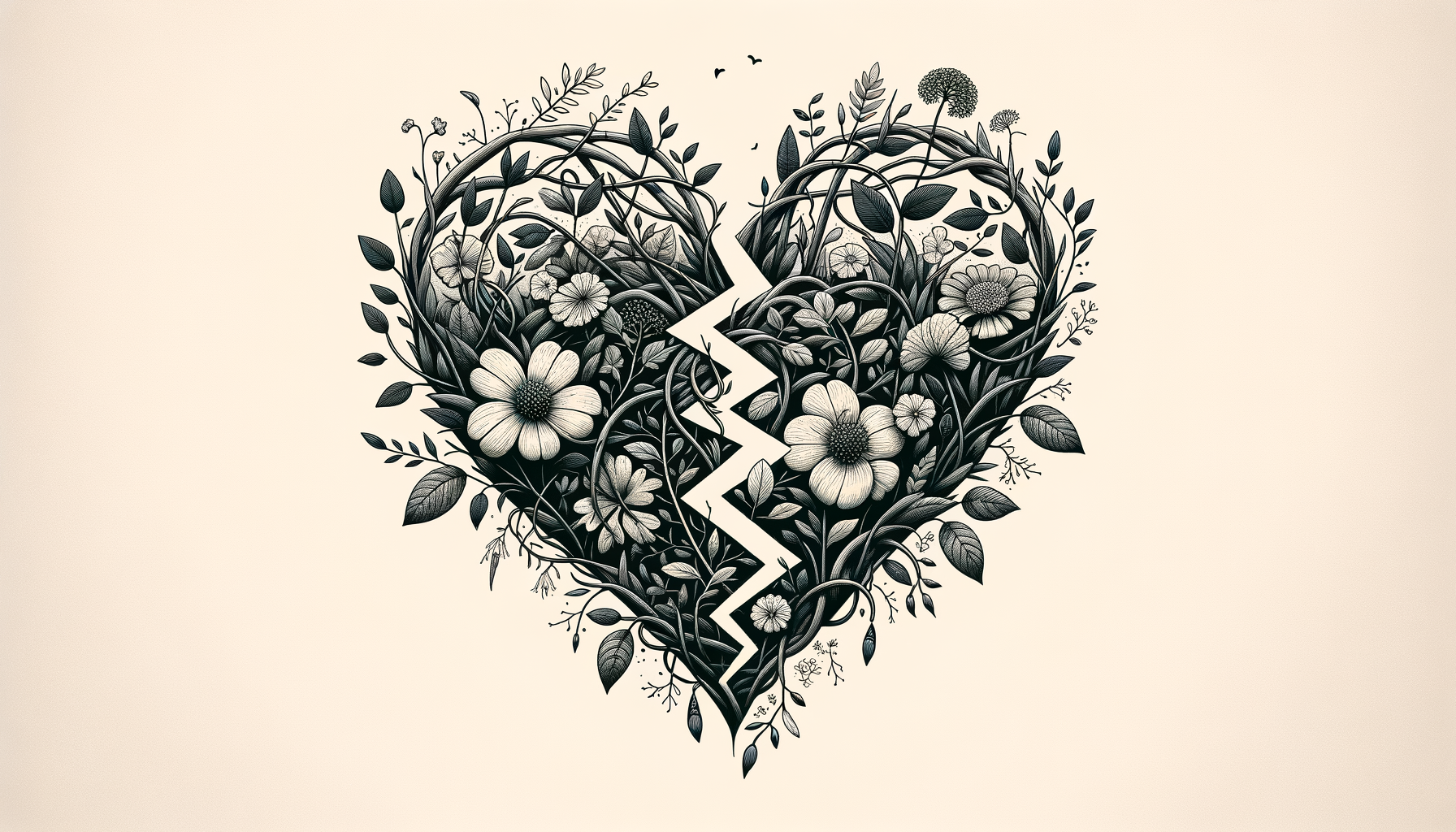I remember the day my editor pitched me a piece that stopped me mid-sip of my cafecito. “We want you to write about heartbreak,” she said, with the kind of casualness that made it sound like she was asking me about the weather. Heartbreak? Simple enough, I thought. But as I stared at the blank screen later that evening, my hands hovering over the keyboard, I realized: heartbreak isn’t just something you write about; it’s something you survive. And dredging it up for a word count? That’s a whole other beast.
Let me tell you—writing this piece was harder than explaining to my abuela why I was still single at 32. Or teaching high schoolers why Of Mice and Men mattered more than their TikTok dance routines. This wasn’t just an article; it was part therapy session, part existential crisis, and part digging through the Mariana Trench of my past for something valuable to share. By the end of it, though, I learned more than I expected—not just about heartbreak but about the courage it takes to heal and articulate something so painfully universal.
Why Writing About Heartbreak Feels Like Dancing Salsa with Two Left Feet
Heartbreak sneaks up on you, not unlike the inevitable day you realize your favorite pair of jeans doesn’t fit anymore. Writing about it felt the same—all messy corners and no clean lines. Where do you even begin? With that first dizzy flirtation that makes you believe in love songs again? The quiet unraveling that feels like watching a slow-motion car crash? Or maybe the long nights post-breakup, when it feels like you’re competing in an Olympic-level marathon of scrolling through old messages?
For me, it started with a memory: a first kiss in the rain (I know, très cliché) with a woman whose laugh could fill entire rooms. She loved Cuban poetry, the Eagles, and devouring pastelitos in exactly three bites. Years later, the memory of our first fight stung just as vividly. She told me I wasn’t present, that I hid behind my writing instead of opening up. I deflected—some nonsense about being “misunderstood,” like I was auditioning for an emo band circa 2007. Spoiler alert: she was right, and it took me years to admit it.
Writing about heartbreak asks you to revisit these ghosts—not as a tourist but as an archeologist. You brush off the dirt, examine the cracks, and try to find meaning in the shards of the experience. Not to mention, the process is like juggling two competing voices in your head. One whispers, “Be vulnerable. Dig deeper.” The other? “Do NOT call your ex for clarity, you clown.”
Terror in Translation: Turning Tears into Lessons
I knew that if I was going to pour my heart out, it couldn’t just be a sob story; people have enough of their own heartbreaks to cry over. The challenge was turning those personal wounds into something that felt useful, like the literary equivalent of offering your friend a shot of rum after a breakup and saying, “It’s devastating, yes—but look how alive you still are.”
So, I tried breaking it down. Heartbreak is really three things:
-
A Humbling Reminder You’re Human
You’ll try to intellectualize it at first. “This hurt is just a neurotransmitter thing,” you might say. Spoiler: That doesn’t work. You’ll ugly-cry through a commercial for puppy adoption, and suddenly, you’re Googling quotes by Rupi Kaur like an amateur philosopher. Heartbreak flattens your ego in ways you didn’t think possible—and this, if you let it, will grow into an unexpected strength. Vulnerability isn’t a weakness; it’s a passport to connection. -
An Invitation to Rebuild
Heartbreak cracked me open like the shell of one of those croquetas my mom burns every Thanksgiving. And while I’ll take that pain over the smell of scorched breadcrumbs any day, the truth is this: when your heart is in pieces, you get to decide how to reconstruct it. Better, stronger, and maybe (just maybe) with an updated perspective on how you want to be loved. I wrote about this process not as an expert but as someone fumbling toward the light, highlighting that growth looks more like bumps and bruises than perfection. -
A Precursor to Joy You Didn’t Imagine
Here’s what I didn’t expect to write: I am grateful for heartbreak. Sitting down to write this piece forced me to revisit not just the pain but the pivotal moments that shaped how I date now. Like learning that emotional honesty isn’t just cute when it’s written in love letters—it’s the backbone of real, sustainable relationships. Or realizing that love’s beauty isn’t in its permanence but in its presence.
How Revisiting Heartbreak Changed Me—And Why That’s Okay
There’s an old Cuban saying I grew up hearing in my family, usually tossed around whenever life hit a rough patch: No hay mal que por bien no venga. Loosely translated, it means, “There is no bad from which good cannot come.” It was my dad’s go-to line after anything from a flat tire to a breakup, and at 15, it felt like the emotional equivalent of a shrug. But as I wrote this article, the phrase took on new depth.
If heartbreak taught me anything, it’s that good doesn’t come from some cosmic balancing act; it comes from the deliberate work of understanding ourselves better. In revisiting my failed relationships (and by extension, my flaws), I didn’t just confront my pain—I redefined it. I learned compassion for past versions of myself who didn’t yet know better. I laughed at the cringe-worthy ways I bluffed confidence when I was terrified of opening up. I celebrated the growth that came from every torn-up love letter and every awkward apology.
And no, the article wasn’t neat or easy. It was a mishmash of poetic moments, bitter truths, and personal epiphanies. But in the end, it wasn’t just about heartbreak. It was about showing readers (and reminding myself) that even when you don’t have all the answers, healing is in the trying.
The Takeaway: You’re Stronger Than Your Hardest Memory
If you’re in the middle of heartbreak right now, let me tell you the one thing I couldn’t believe when I was there: you’ll be okay. Not because time is a magic bandage, but because you are resilient. Writing this article made me realize there’s beauty in embracing individuality during heartbreak. The lessons are as personal as the experience itself, no recycled advice required—though a lot of salsa dancing and some abuela-approved wisdom never hurt.
And here’s the cherry on the pastelito: heartbreak can become your reset button. It’s life’s uninvited but oddly effective way of shaking your foundations so hard that you have no choice but to rebuild—and rebuild beautifully.
So whether you’re still in the messy middle or standing on the other side, let me say this: heartbreak isn’t the end of the story. It’s the hardest chapter, yes, but also the one where we learn the most. Write it, live it, let it crack you open. Because no hay mal que por bien no venga, my friends. Always.




















